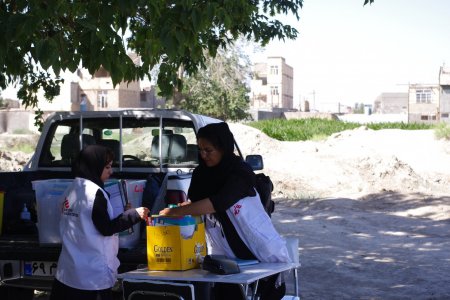 MSF
Analysis
MSF
Analysis
09/18/2020
Fabrice Weissman
On the 31st January, a symposium was held at Sciences Po in support of Fariba Adelkhah and Roland Marchal, researchers at Sciences Po's Center for International Research (CERI) who were arrested in Iran on June 5, 2019. Roland Marchal was released on 20th March 2020 in exchange for an Iranian engineer detained in France. On 6th May Fariba Adelkhah was sentenced to 6 years imprisonment for "propaganda against the political system of the Islamic Republic, and collusion to undermine national security". The researcher was offered conditional release on condition that she terminates her research, but she refused.
The symposium brought together diplomats, journalists, humanitarians and researchers, with the aim of "nourishing reflection about prisoners and hostages, from a political, legal and ethical point of view". Fabrice Weissman presented the experience of Médecins Sans Frontières in the face of kidnappings.
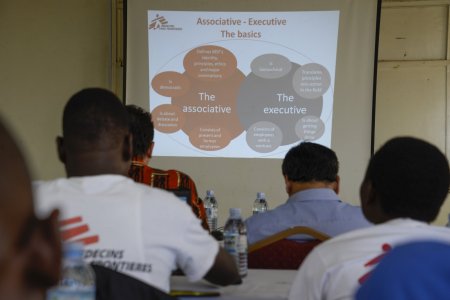 Aurélie Baumel
Interview
Aurélie Baumel
Interview
09/08/2020
Jean-Hervé Bradol
Interview by Helai Hosseini. A first version was published on the website of the MSF France association on 31 July 2020.
In the wake of the Black Lives Matter movement in the United States, voices have risen within MSF denouncing the racist and discriminatory nature of our organization. Equal opportunity, they say, is not offered to all our employees. Founded in France in the early 70s by a handful of doctors and journalists, the organization has grown and become international, now employing over 46,000 people around the world, nearly 39,000 of whom are recruited locally. How has MSF’s policy towards its personnel evolved down the years? What is currently being done to fight inequalities? Here is Jean Hervé Bradol’s take on the major phases that have marked MSF’s transformation and the ways in which discussions are engaged today.
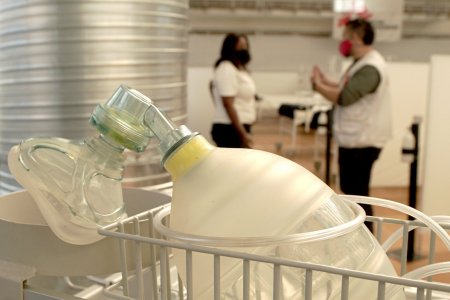 MSF/Rowan Pybus
Analysis
MSF/Rowan Pybus
Analysis
07/22/2020
Marc Le Pape
In France, from March onwards, many sociologists regularly appear in the media. Based on this observation, Marc Le Pape analysed 37 articles written during the containment period, dealing with the Covid-19 pandemic.
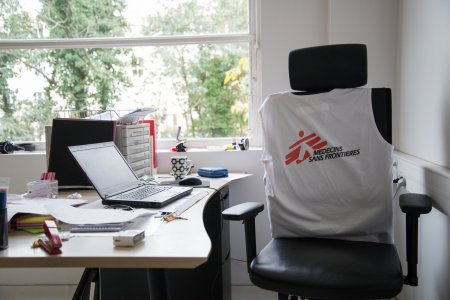 MSF/Antoine Kremer
Interview
MSF/Antoine Kremer
Interview
07/20/2020
Marion Péchayre
Elba Rahmouni
In our first interview, Marion Péchayre discussed a variety of management-related problems at Médecins Sans Frontières: working in silos, the ever-growing number of management tools for monitoring, the endless validation requests, the vanishing role of the individual in favour of pseudoscientific presentations of events and projects, etc. This interview, conducted by Elba Rahmouni, focuses on solutions to these problems and hypotheses on how to improve our ways of working. Rather than offering set recipes, Marion Péchayre advocates an approach based on “practical wisdom” (a concept from the sociology of professions) and deliberative management that every individual and team can apply in their own way.
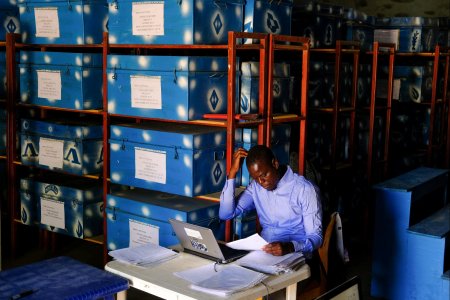 Eric Bouvet
Interview
Eric Bouvet
Interview
05/11/2020
Emmanuel Baron
Elba Rahmouni
Crisis situation, response strategies, hydroxychloroquine, interventional epidemiology and the state of scientific research in Africa: Elba Rahmouni interviews Emmanuel Baron, Director of Epicentre, Médecins Sans Frontières
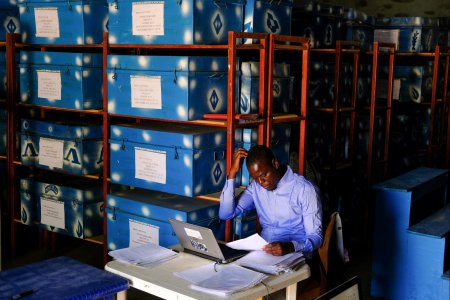 Eric Bouvet
Interview
Eric Bouvet
Interview
05/11/2020
Emmanuel Baron
Elba Rahmouni
Crisis situation, response strategies, hydroxychloroquine, interventional epidemiology and the state of scientific research in Africa: Elba Rahmouni interviews Emmanuel Baron, Director of Epicentre, Médecins Sans Frontières
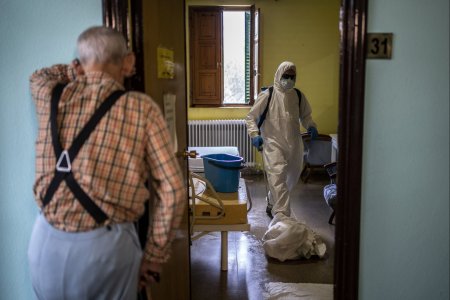 Olmo Calvo/MSF
Opinion
Olmo Calvo/MSF
Opinion
05/10/2020
Jean-Hervé Bradol
The biggest oversight in the response to this epidemic has been the EHPADs. For the staff, the directive was clear: continue to work and provide an alternative to hospitalisation. No matter the conditions. For the residents, it was to die alone without treatment to alleviate their suffering.
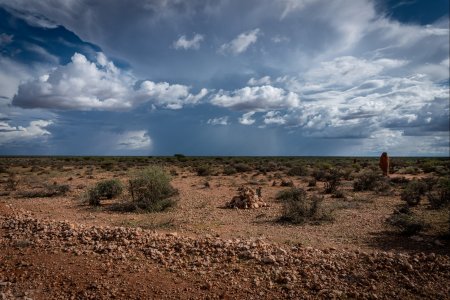 Susanne Doettling/MSF
Op-ed
Susanne Doettling/MSF
Op-ed
04/09/2020
Fabrice Weissman
Following an article co-written by members of the Swiss and Canadian sections of MSF, Fabrice Weissman presents a critical analysis of the arguments put forward by his colleagues. An analysis that could be useful to the entire movement, and to the humanitarian community as a whole.
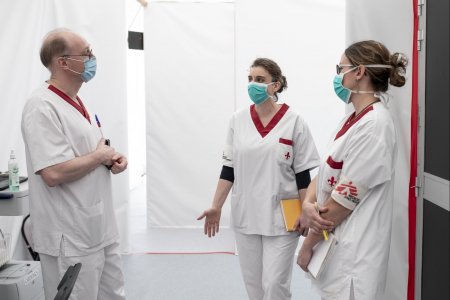 Pablo Garrigos/MSF
Interview
Pablo Garrigos/MSF
Interview
04/06/2020
Jean-Hervé Bradol
Elba Rahmouni
In exceptional circumstances where the demand for care exceeds the supply, how do you decide who to start with? Triage is necessary where there is exceptional demand, leading to the use of a specific procedure to establish priorities. Interview of Jean-Hervé Bradol conducted by Elba Rahmouni based on the article “In a disaster situation: get your bearings, triage and act” published in the book La médecine du tri. Histoire, éthique, anthropologie edited by Céline Lefève, Guillaume Lachenal and Vinh-Kim Nguyen.
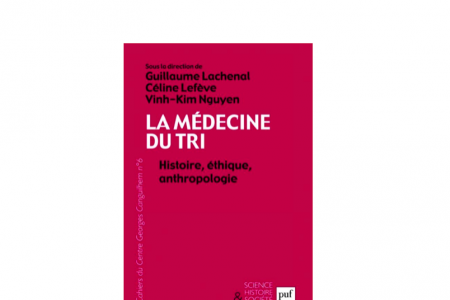 Puf
Analysis
Puf
Analysis
04/03/2020
Jean-Hervé Bradol
On 12 January 2010, a high-magnitude earthquake caused numerous buildings in the city of Port au Prince in Haiti to collapse. Tens of thousands of people were killed or injured by falling blocks of concrete. The aftershocks from the earthquake, the predictions made by some seismologists and public rumours prompted fears of a repeat of the disaster. Houses, schools, churches, hospitals and business premises – all the places that had housed the capital’s residents and their main activities – had become lethal traps and a permanent threat.
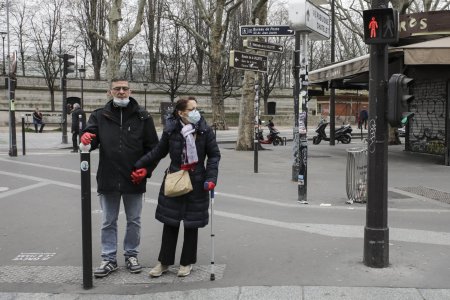 Aurelie Baumel/MSF
Interview
Aurelie Baumel/MSF
Interview
03/17/2020
Jean-Hervé Bradol
Confronted with a "totally unprecedented biological, social and political event", Jean-Hervé Bradol spoke with Mediapart about the difficulties of basing all prevention on behavioural measures: "It takes time for a society to fully acknowledge the existence of the event, which is unfolding as it tries to understand it.”
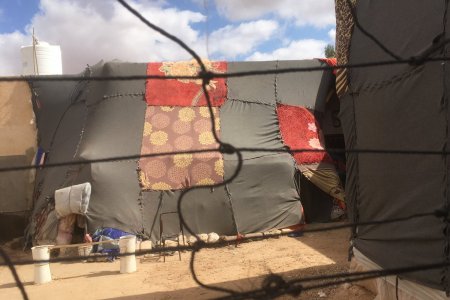 Michaël Neuman / MSF
Opinion
Michaël Neuman / MSF
Opinion
03/02/2020
Michaël Neuman
Michaël Neuman spent ten days in Libya with Médecins Sans Frontières teams working in detention centres for migrants. From his stay, he brings back the following impressions that illustrate the gloomy situation of the people who are held there, for months or years, and the even more difficult situation of all those subject to kidnapping and torture.










